Cisco Industrial Wireless Monitor Solution Overview
Available Languages
Bias-Free Language
The documentation set for this product strives to use bias-free language. For the purposes of this documentation set, bias-free is defined as language that does not imply discrimination based on age, disability, gender, racial identity, ethnic identity, sexual orientation, socioeconomic status, and intersectionality. Exceptions may be present in the documentation due to language that is hardcoded in the user interfaces of the product software, language used based on RFP documentation, or language that is used by a referenced third-party product. Learn more about how Cisco is using Inclusive Language.
Cisco® Industrial Wireless (IW) Monitor is a networkwide, on-premises monitoring tool, allowing any Cisco Ultra-Reliable Wireless Backhaul (URWB) customer to proactively maintain and monitor one or multiple wireless Operational Technology (OT) networks. IW Monitor displays data and situational alerts from every Cisco URWB device in a network, in real time.
IW Monitor supports fixed and roaming network architectures and allows easier end-to-end troubleshooting of any Cisco URWB system. It can be operated as a standalone system or in parallel with a sitewide Simple Network Management Protocol (SNMP) monitoring tool. It is designed to support network installations used in smart cities, rail, mining, ports and terminals, entertainment, smart factories, and military applications.
● On-premises monitoring tool for Cisco URWB networks.
● Wizard setup for quick and easy installation and deployment.
● Real-time dashboard displaying uptime, throughput, latency, jitter, and other network Key Performance Indicators (KPIs).
● Customizable section view to easily check groups of radios.
● Customizable monitoring alerts for prompt response.
● Radio-by-radio data logging with a minimum sampling interval of 300 ms.
● Real-time radio configuration display for quick and accurate troubleshooting.
● Side-by-side comparison of radio KPIs over time and over vehicle position.
● Data logging export via remote syslog.
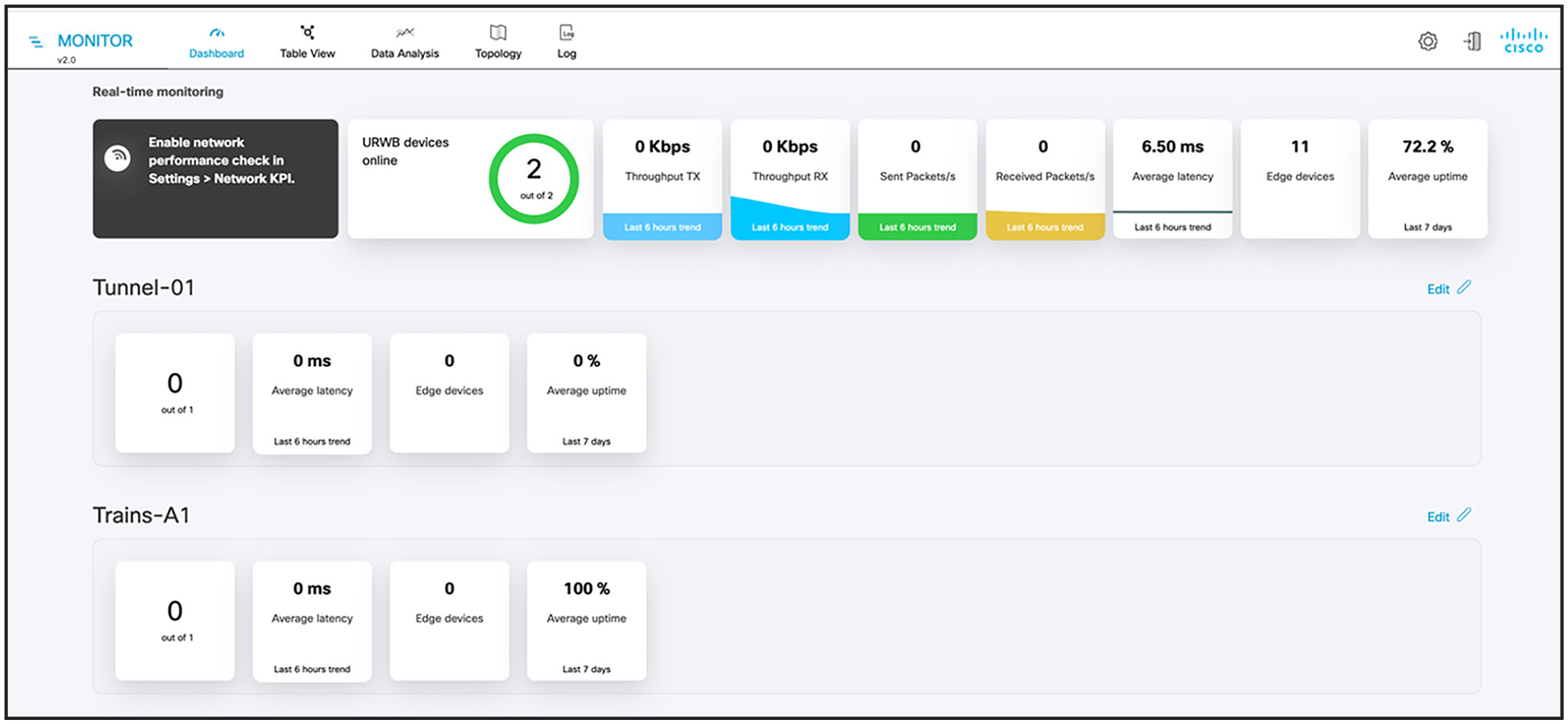
The dashboard shows overall network performance and offers customizable segmentation of the network into clusters. This allows for easy monitoring of network sections or parts of a fleet of vehicles, maximizing network usage and performance. Clusters can include backhaul point-to-point links, point-to-multipoint distribution networks, vehicle access networks, wayside networks, and vehicle-mounted radios. IW Monitor displays and tracks real-time KPIs within each cluster, including the number of active radios, the number of connected IP edge devices, end-to-end latency, jitter, upload and download throughput in real time, and system uptime.
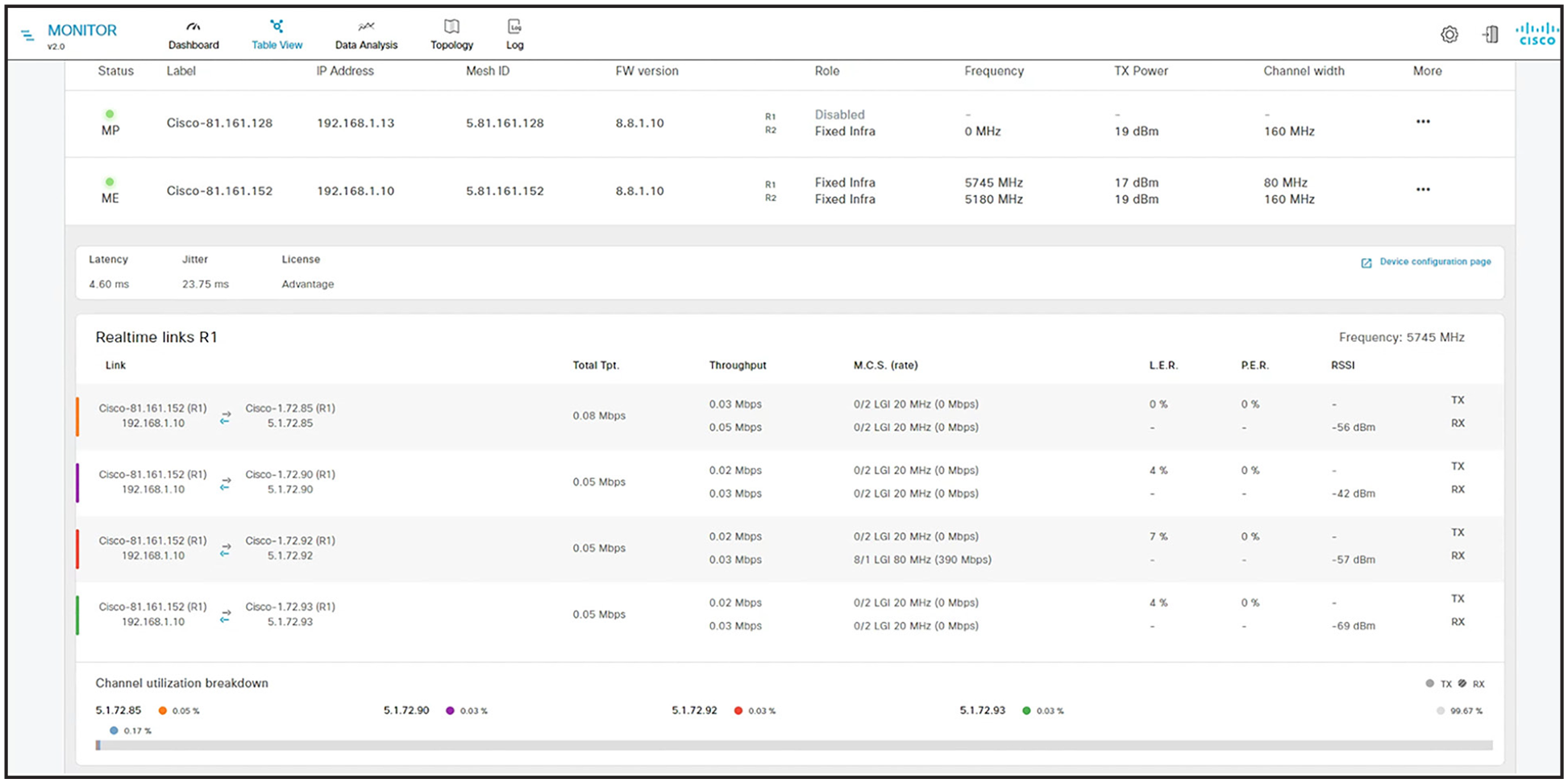
The table view allows customers to condense sections of the network into a tabular view, isolating specific radio configurations and performance statistics. During troubleshooting, this drastically reduces the time needed to understand system performance on a radio-by-radio basis.
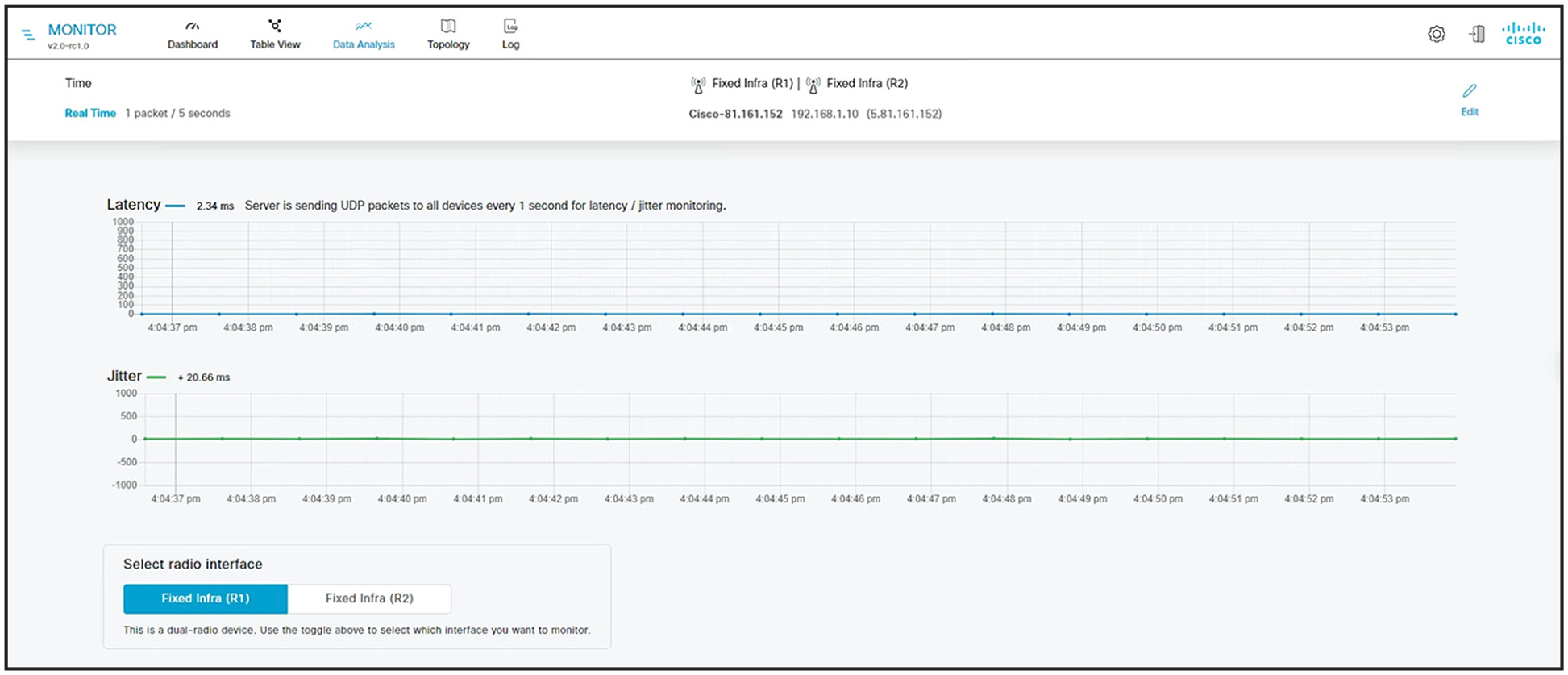
The data analysis view allows data to be recorded from URWB radios at a user-defined rate. Individual radios and parameters can be analyzed at customized sampling rates, allowing comparative analysis of network performance over time while enabling a better understanding of past network behavior and future improvement. Sampling rates can be set to a minimum interval of 300 ms per radio, allowing data to be collected at a rate two orders of magnitude higher than the next-best SNMP monitoring tool on the market. This is particularly valuable where traditional SNMP or Internet Control Management Protocol (ICMP) monitoring solutions are inadequate—for example, when a network has latency requirements of less than 1 second. Data can also be exported in different formats to facilitate easier, quicker reporting.
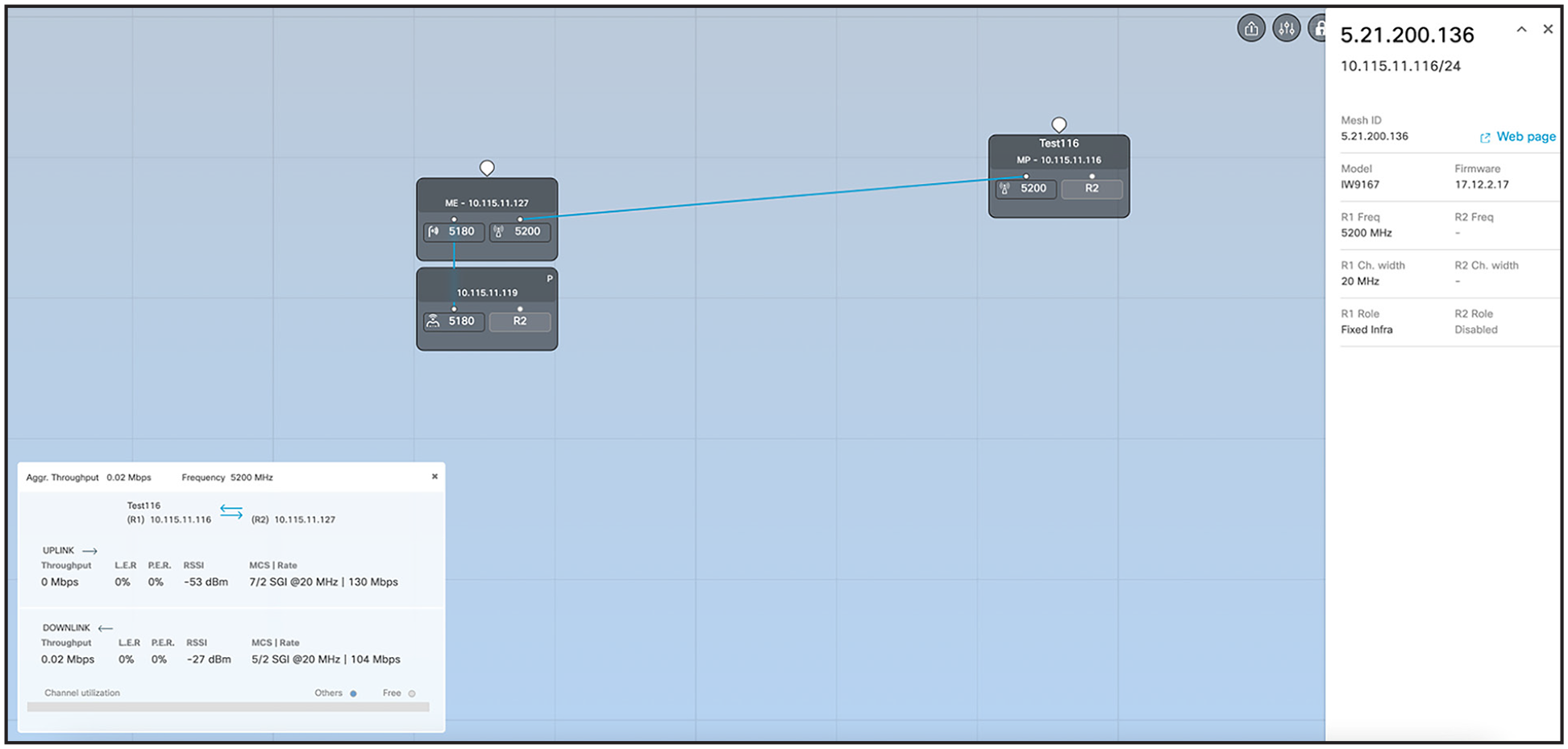
Topology view provides an overview of the whole network while making it possible to focus on the KPIs of a single radio deployed along the network.
IW Monitor also allows customers to synchronize network information with available vehicle positioning data (support for GNSS telemetry data will be available in future releases*). This is particularly valuable in environments such as mines, where wireless infrastructure has a dynamic nature, or in container terminals, where RF network performance can vary dramatically depending on the current location.
IW Monitor is available as a virtual image for installation on a local server. It captures high-frequency radio telemetry in real time, preventing duplicated latency and delivering precise network metrics.
Cloud access is also possible for a unified experience when managing the URWB IW devices through the Industrial Wireless service.
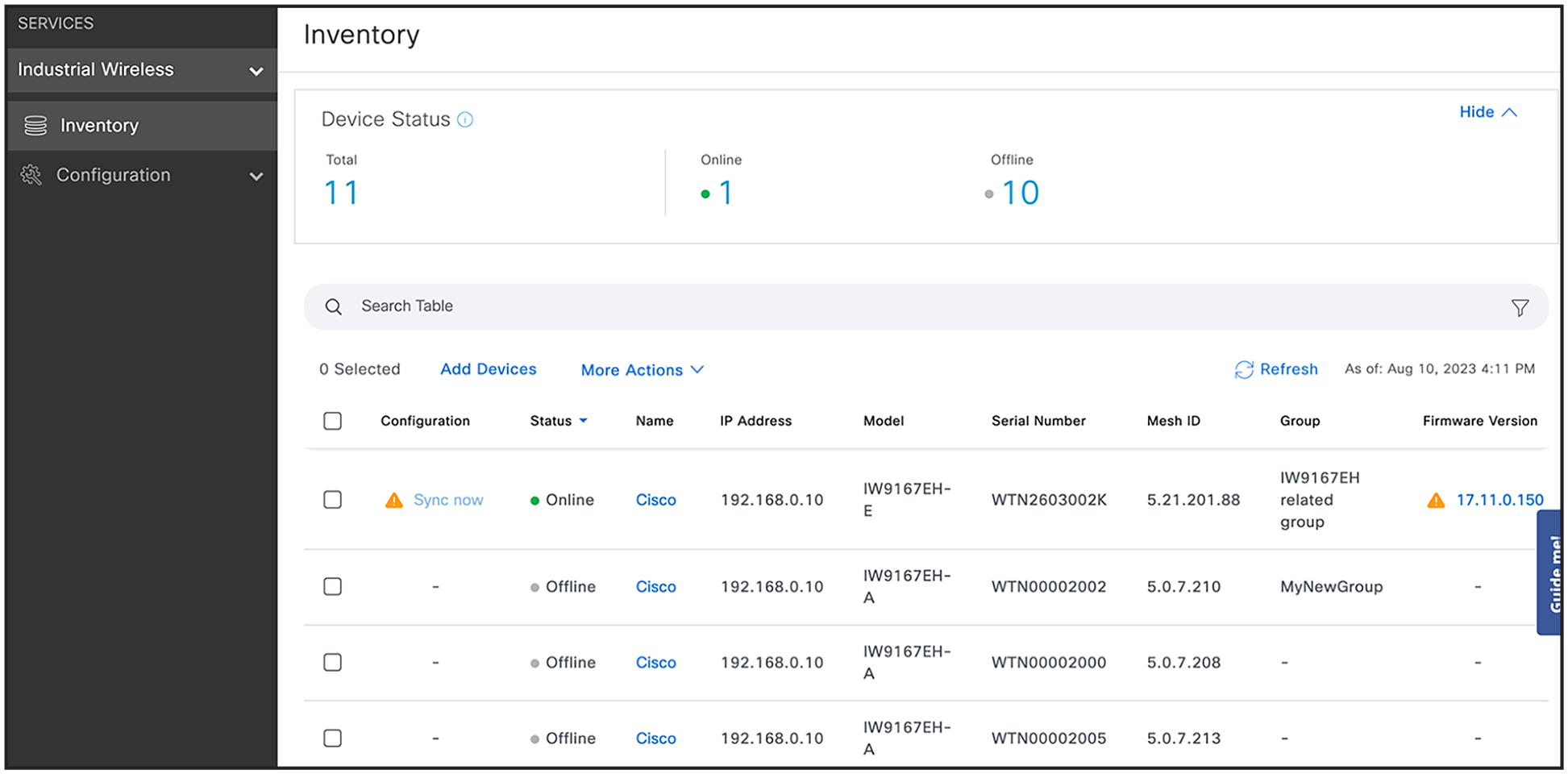
While IW Monitor is used to monitor URWB networks, the Industrial Wireless (IW) service is used to provision and manage URWB IW devices. It is a secure, cloud-native, scalable service. It also allows you to configure and upgrade the firmware of connected devices remotely. For air-gap networks, the offline mode still allows for creating templates and configuration files that can be locally uploaded to the device through the WebUI or command-line interface. To learn more about the IW service, see the Cisco Industrial Wireless Service in At-a-Glance.
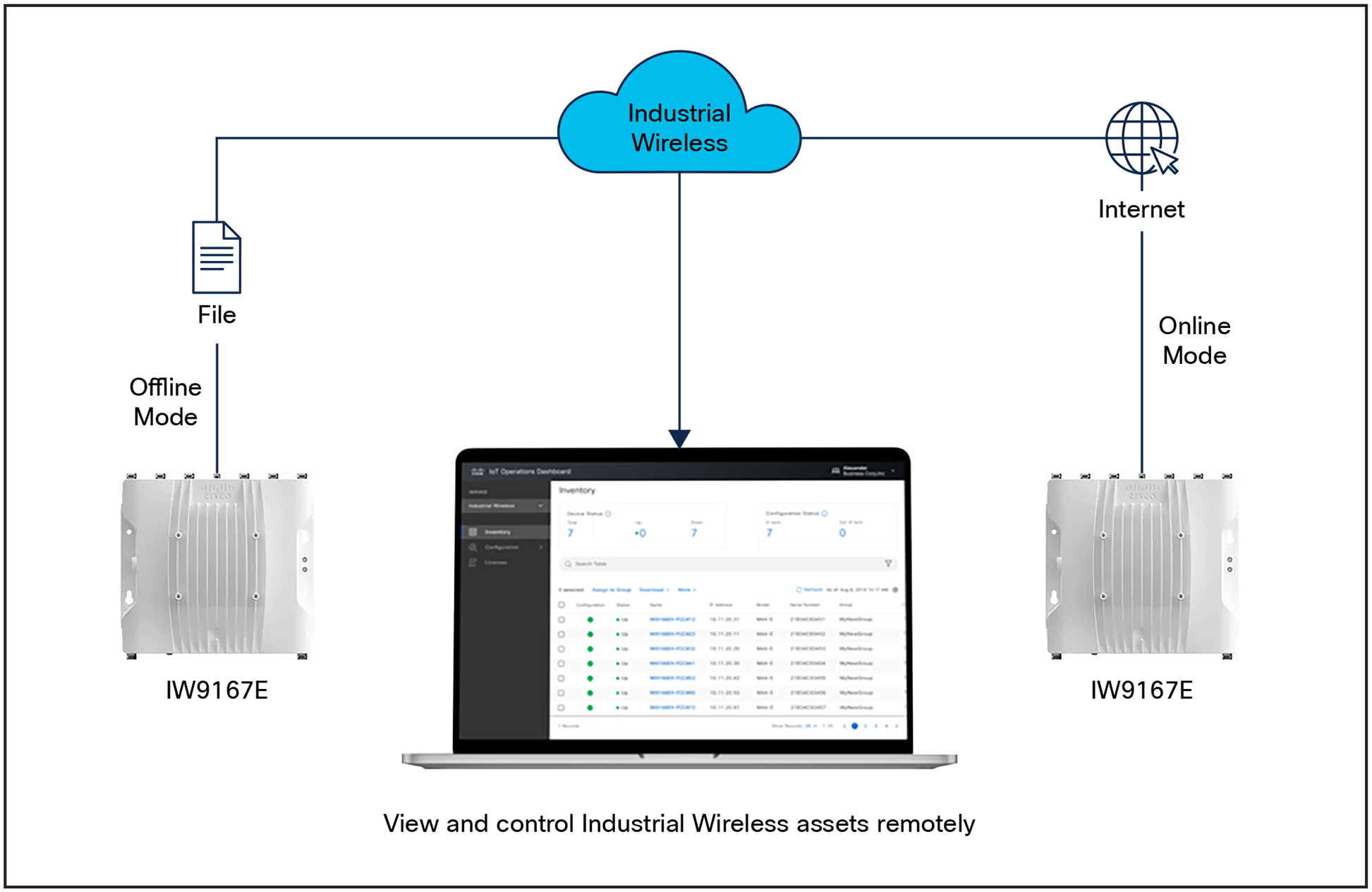
Industrial Wireless service can be used to view and control URWB IW devices remotely